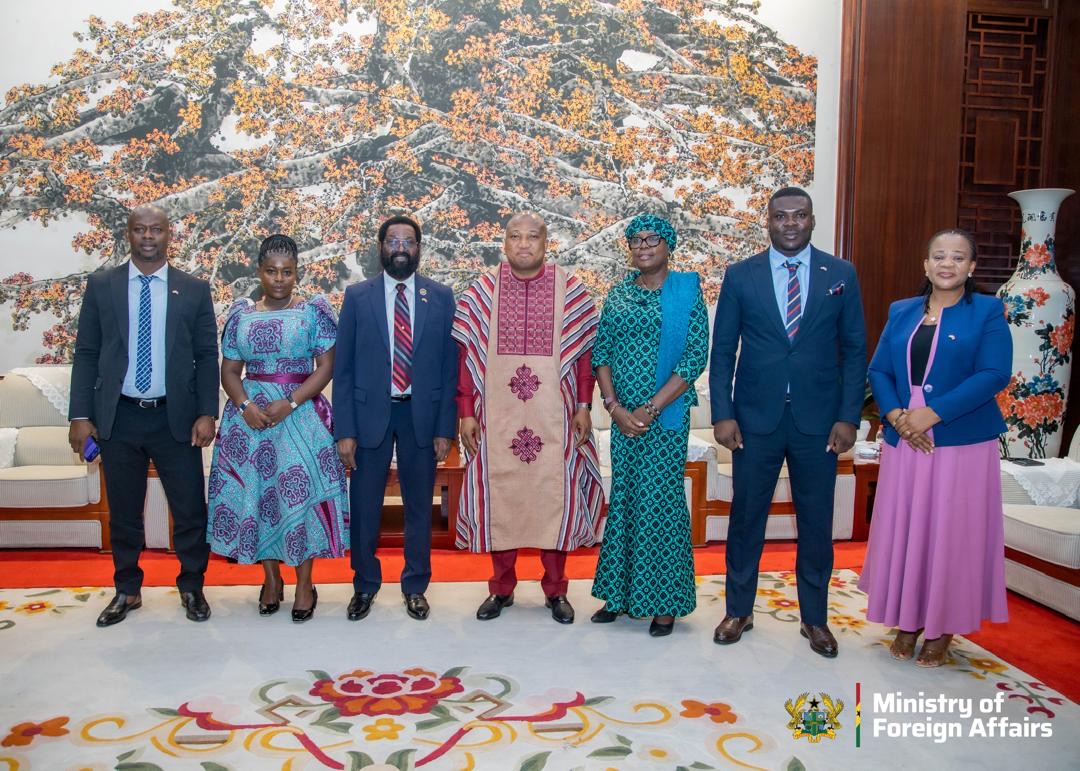Deputy Minister for Trade, Agribusiness and Industry, Hon. Sampson Ahi, has made a clarion call for Ghana to take the lead in ethical fashion production, urging industry players to commit to sustained efforts in achieving WRAP certification and global compliance. “Ghana must lead in ethical fashion, With determination and collective effort, we will set the standard for responsible garment manufacturing in Africa”. He stated.
Speaking at the close of the country’s first-ever WRAP Technical Assistance Training of Trainers workshop, held in Accra on Wednesday, 11th June, 2025, Hon. Ahi described the initiative as a strategic springboard toward Ghana’s ambition of becoming a competitive, ethical, and sustainable apparel manufacturing hub in West Africa.
“This training is not just a capacity-building exercise—it is a springboard for opportunity, credibility, and competitiveness,” the Deputy Minister stated. “Let us seize this moment and make Ghana a hub for ethical garment manufacturing.”
Organized by GIZ under its “Invest for Jobs” programme, in partnership with development stakeholders, the two-day workshop trained local professionals to serve as WRAP (Worldwide Responsible Accredited Production) Technical Assistants. This will reduce the industry’s reliance on costly foreign audits, making certification more accessible to local businesses.
Currently, only two companies in Ghana hold WRAP certification, with two others awaiting approval and nine in the preparatory stages. Hon. Ahi emphasized that increasing the number of WRAP-certified factories is crucial for Ghana to secure its place in the global apparel value chain.
“In today’s global trade environment, ethical production and responsible sourcing are no longer optional—they are prerequisites for market access,” he said. “The ‘Made-in-Ghana’ label must be synonymous with quality, responsibility, and trust.”
The Deputy Minister pointed to the government’s Vision 2033, which outlines a roadmap to develop a modern, sustainable garment sector worth over USD 2 billion and capable of creating more than 150,000 direct jobs. The sector is seen as critical to industrial diversification and youth employment.
Ghana’s momentum in the apparel sector is already evident. Hon. Ahi referenced the success of Dignity DTRT, the largest garment factory in West Africa, which employs over 5,000 workers and produces more than 1.35 million garments monthly. An additional 6,000 jobs are expected with the completion of a new 200,000 square foot manufacturing facility.
The WRAP Technical Assistance Training, he added, will enable more Ghanaian factories to adopt best practices in workplace safety, labour rights, and environmental sustainability—qualities demanded by international brands and consumers.
“Trust governs market access,” Hon. Ahi said. “Consumers and investors want to know their products are made ethically. With WRAP-certified professionals leading the charge, Ghana can confidently meet that expectation.”
To participants, he issued a challenge: “You are trailblazers. Share your knowledge, build connections, and support other industry players. The transformation of Ghana’s apparel industry begins with you.”
He also extended appreciation to GIZ, development partners, facilitators, and stakeholders for their unwavering commitment and called for continued collaboration in expanding certification coverage and building a strong pipeline of skilled industry professionals.
On his part, the Team leader, Programme Invest for Jobs at GIZ, Mr. John Duti commended the relevance and growing impact of the textile and garment sub-sector in Ghana, highlighting its evolution from domestic tailoring practices to structured factory production. Reflecting on earlier years, he recalled how mothers used sewing machines at home, often patching children’s clothes—a testament to the long-standing cultural connection to garment-making. He noted that the sector has since transitioned into a promising avenue for employment, especially among the youth, with several factories emerging across the country.
He emphasized that the government’s commitment to driving a real physical economy includes support for this sub-sector. However, he cautioned against the mere proliferation of factories, stressing the importance of maintaining quality standards. “We have to move from the “Saa na y3 y3 no” approach and ensure that when somebody gives an order, we meet the specification,” he said, urging industry players to prioritize precision and competitiveness in production.
Mr. Duti lauded the ongoing training initiative, which falls under the Special Initiative on Decent Work for a Just Transition, funded by the German government. He acknowledged the importance of not only increasing productivity but also ensuring the well-being of factory workers.
He pointed out that decent employment practices are not just ethical but necessary for certification and participation in broader trade opportunities, including the African Continental Free Trade Area.
He concluded by extending appreciation to the Ministry of Trade, Agribusiness and Industry, the Ministry of Finance, and mentoring partners for their collaboration in supporting the initiative.
Mr. Duti affirmed the commitment of stakeholders to continue building the capacity of the sub-sector and helping local businesses meet both regional and international standards.






































